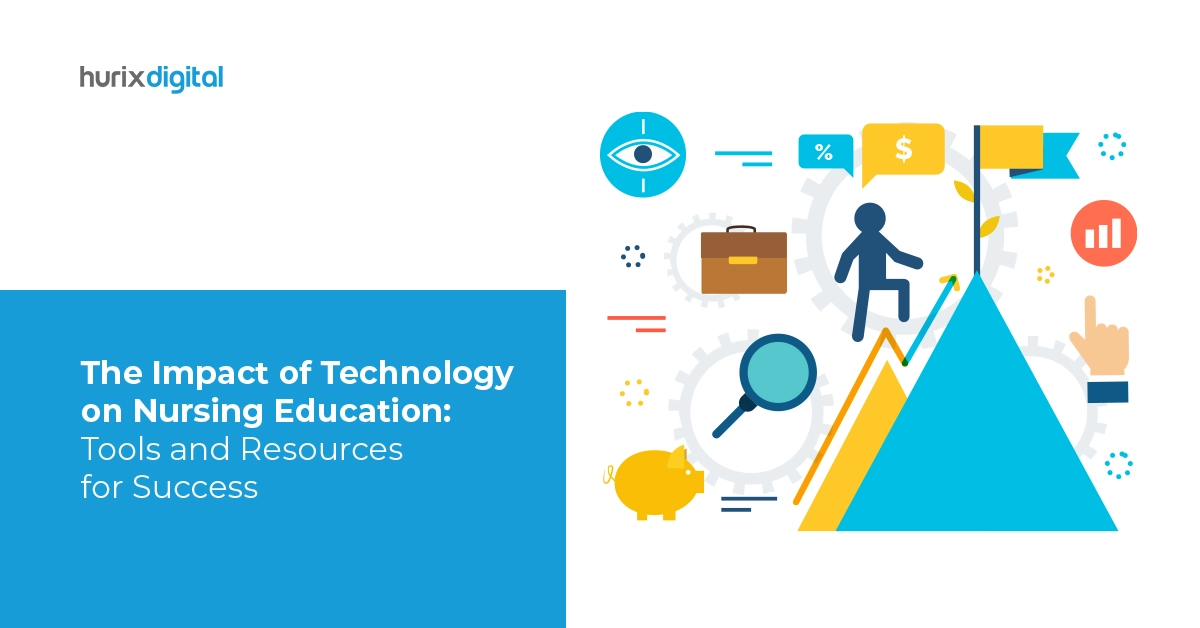Summary
Embark on a journey beyond the conventional realms of nursing education as we delve into specialized fields. From understanding their significance to uncovering avenues for career growth, this guide navigates the terrain with clarity. Discover how Hurix Digital can empower your educational pursuits and professional endeavors.
In the dynamic landscape of healthcare, nursing professionals play a pivotal role in providing compassionate care, promoting health, and preventing illness. Central to the preparation of these dedicated caregivers is nursing education, which equips them with the knowledge, skills, and competencies necessary to excel in their roles. While the nursing curriculum typically covers a broad range of foundational topics, there exists a vast array of specialized fields in nursing that extend beyond the traditional coursework, offering opportunities for deeper exploration and specialization. In this blog, we delve into the importance of exploring these specialized fields, their relevance in modern healthcare, and how they can enhance the nursing profession.
Table of Contents:
- What is a Traditional Curriculum in Nursing?
- What are the Specialized Fields in Nursing Education?
- Why is Exploring Specialized Fields in Nursing Important?
- How Can Specialized Fields in Nursing Be Helpful?
- When Can Specialized Fields in Nursing Be Used?
- Conclusion
What is a Traditional Curriculum in Nursing?
A traditional nursing curriculum encompasses a comprehensive set of courses and clinical experiences designed to prepare students for entry-level nursing practice. These typically include foundational courses in anatomy, physiology, pharmacology, and nursing fundamentals, along with clinical rotations in various healthcare settings. While essential for building a strong foundation in nursing practice, the traditional curriculum may sometimes provide only a broad overview of specialized areas within the field.
What are the Specialized Fields in Nursing Education?
Specialized fields in nursing education encompass a wide range of areas that allow nurses to deepen their knowledge, skills, and expertise in specific aspects of patient care, healthcare delivery, and professional practice. These fields offer opportunities for nurses to pursue advanced roles, specialize in particular patient populations or healthcare settings, and contribute to improving health outcomes. Here are some of the specialized fields in nursing education:
- Critical Care Nursing: Critical care nurses specialize in providing care to patients with life-threatening conditions in intensive care units (ICUs), emergency departments, and other critical care settings. They are trained to manage complex medical conditions, monitor vital signs, administer advanced life support interventions, and collaborate with interdisciplinary teams to optimize patient outcomes.
- Pediatric Nursing: Pediatric nurses focus on providing care to infants, children, and adolescents across various healthcare settings, including pediatric hospitals, clinics, and community health centers. They are trained to address the unique physiological, developmental, and psychosocial needs of pediatric patients and their families, promoting health and wellness from infancy through adolescence.
- Oncology Nursing: Oncology nurses specialize in caring for patients diagnosed with cancer, supporting them throughout the cancer care continuum from diagnosis to survivorship or end-of-life care. They are trained to provide symptom management, administer chemotherapy and other cancer treatments, and offer emotional support to patients and their families facing cancer-related challenges.
- Psychiatric-Mental Health Nursing: Psychiatric-mental health nurses specialize in assessing, diagnosing, and treating individuals with mental health disorders, substance abuse issues, and psychiatric emergencies. They work in psychiatric hospitals, community mental health centers, correctional facilities, and other settings, providing therapeutic interventions, medication management, and crisis intervention services.
- Women’s Health Nursing: Women’s health nurses focus on promoting and maintaining the health and well-being of women across the lifespan, from adolescence through menopause and beyond. They provide comprehensive reproductive health services, prenatal and postpartum care, family planning counseling, and support for women’s health issues such as gynecological conditions and reproductive cancers.
- Gerontological Nursing: Gerontological nurses specialize in caring for older adults, addressing the unique health challenges and care needs associated with aging. They work in various settings, including long-term care facilities, assisted living communities, home health agencies, and acute care hospitals, providing comprehensive geriatric assessments, managing chronic conditions, and promoting healthy aging strategies.
- Community Health Nursing: Community health nurses focus on promoting health and wellness within communities and populations, addressing social determinants of health, and preventing disease and injury through education, advocacy, and population-based interventions. They collaborate with community organizations, public health agencies, and policymakers to address health disparities and improve health outcomes at the population level.
- Nurse Educator: Nurse educators specialize in teaching and mentoring nursing students in academic settings such as nursing schools, colleges, and universities. They develop curriculum, facilitate classroom instruction, supervise clinical experiences, and mentor students to prepare them for entry into the nursing profession. Nurse educators may also engage in research, scholarly activities, and professional development to advance nursing education and practice.
These are just a few examples of the specialized fields in nursing education. As healthcare continues to evolve and diversify, nurses have the opportunity to explore a wide range of specialties and advance their careers in areas that align with their interests, passions, and professional goals.
Why is Exploring Specialized Fields in Nursing Important?
Exploring specialized fields in nursing is crucial for several reasons. First and foremost, it allows nursing students and practicing professionals to discover areas of passion and interest within the vast landscape of healthcare. By gaining exposure to different specialties, nurses can make informed decisions about their career paths and pursue avenues that align with their strengths and aspirations.
Furthermore, specialization enables nurses to develop expertise in specific areas of practice, enhancing their effectiveness in delivering specialized care and improving patient outcomes. In an era of increasingly complex healthcare needs, specialized knowledge and skills are invaluable assets that can contribute to the delivery of high-quality, patient-centered care.
How Can Specialized Fields in Nursing Be Helpful?
Exploring specialized fields in nursing opens doors to a multitude of career opportunities and advancement possibilities. Whether it’s delving into critical care nursing, psychiatric-mental health nursing, pediatric nursing, or oncology nursing, each specialty offers unique challenges and rewards. Nurses who pursue specialization often find greater job satisfaction, increased autonomy, and enhanced opportunities for professional growth and development.
Moreover, specialized knowledge and skills empower nurses to address specific patient populations or healthcare issues with precision and expertise. For example, a nurse specializing in diabetes education can play a crucial role in helping patients manage their condition effectively, leading to improved health outcomes and quality of life.
When Can Specialized Fields in Nursing Be Used?
The application of specialized fields in nursing is diverse and far-reaching. From bedside care to leadership roles, specialized knowledge and skills are invaluable in various healthcare settings and contexts. Nurses specializing in areas such as informatics, research, or public health can contribute to advancements in healthcare delivery, policy development, and population health management.
Furthermore, specialization opens doors to non-traditional nursing roles, such as nurse educators, nurse consultants, or nurse entrepreneurs. In an ever-evolving healthcare landscape, nurses with specialized expertise are well-positioned to drive innovation, lead change initiatives, and shape the future of nursing practice.
Conclusion
In conclusion, exploring specialized fields in nursing offers a wealth of opportunities for personal and professional growth, enabling nurses to expand their knowledge, skills, and career horizons. Whether through formal education programs, continuing education courses, or on-the-job training, nurses can embark on a journey of exploration and discovery, enriching their practice and making a meaningful impact on the lives of patients and communities.
As you consider your own path in nursing education and practice, remember that the pursuit of specialization is not only a testament to your commitment to excellence but also a catalyst for positive change in healthcare. Embrace the opportunity to explore new horizons, challenge yourself, and make a difference in the lives of others.
Explore specialized nursing education programs and resources with Hurix Digital. Our comprehensive solutions empower nurses to advance their careers, deepen their expertise, and make a meaningful impact in healthcare.










